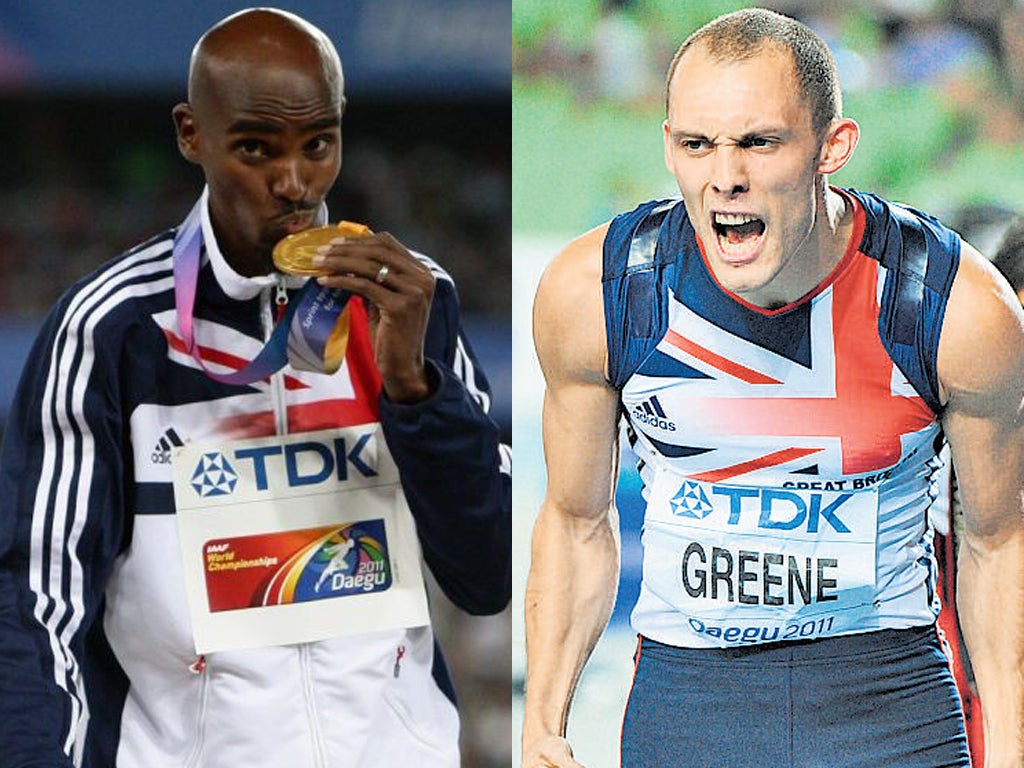GB lay plans to duck curse of the Olympic hosts
UK Sport urges teams to think Rio not just London in order to keep the gold rolling in 2016

Britain's Olympic sports are being encouraged to begin their planning for the 2016 Olympics in Rio de Janeiro now in an attempt to stave off the slump in performance that has consistently hit host nations in the aftermath of holding a successful Games.
National governing bodies have been asked by UK Sport to submit their business plans for the next Olympic cycle by February before concentrating wholly on the London Games. The aim is to have plans in place to pick up after the 2012 Games finish in September and so avoid a decline that has affected every host in recent times.
"While London will burn bright it is so important that we have planned going forward," said Peter Keen, director of performance at UK Sport. "We are ready to go with our Rio planning process. It sounds controversial but we are confident it does not detract from London. After a home Games the biggest problem is managing the transition. We have to make sure there is no cliff edge in funding or momentum."
UK Sport have taken advice from those involved in the Sydney Games of 2000, which has become a closely studied model. In the 1996 Games, with the momentum of a home Olympics to come, Australia climbed the medals table to fourth – as Britain did in Beijing. They then increased that medal tally and held on to fourth place in 2000. Four years later they clung on to fourth but with fewer medals and then in Beijing they slipped to sixth with fewer medals still. It follows a regular pattern in modern Games with Greece, the United States, Spain and South Korea all suffering a post-host downturn.
"Our aspiration is to do what nobody has done before," said Liz Nicholl, UK Sport's chief executive. The unspoken ambition is to finish fourth in Rio – the aim for London – for a third Games in succession.
Nicholl has suggested to the Olympic sports that they formulate their plans with a 90 per cent level of funding in comparison to their current deal. Last year's government spending review has guaranteed funding through to 2015, when it will be reviewed.
As for London, UK Sport insist "Mission 2012" – supported by record levels of funding via the National Lottery and government – remains well on course to deliver fourth place and more medals than the 47 won in Beijing.
UK Sport, the body that oversees elite sport in this country, runs a traffic light system to determine where each sport is in preparation for next year's Olympic and Paralympics. Twenty three sports are now rated green, the highest number since the current cycle began in 2008. This year, with the world sailing championships ongoing, British sports have amassed 44 medals in Olympic disciplines. "We are in a good place," said Nicholl of sporting preparations for next year.
From red to green to gold: How Olympic progress is measured
Running along one wall of a conference room of UK Sport's London headquarters is a large chart detailing the progress of each of the 28 Olympic sports. Along another the Paralympic sports. Above each a clock ticks down to next August and the start of the 2012 Games – this morning it is 231 days and counting.
It is a traffic light system; green, amber and red. The aim is to have every sport at green come next summer. As it stands 13 of the Olympic sports are green, the rest amber. On the back of a good performance at September's world championships in Daegu, where Dai Greene and Mo Farah won gold, athletics has joined synchronised swimming and boxing in being switched from amber to green. Synchronised swimming has become one of the quiet success stories of British sport – they are now tipped as an outside bet for a medal next year. One sport, handball, has gone the other way.
Subscribe to Independent Premium to bookmark this article
Want to bookmark your favourite articles and stories to read or reference later? Start your Independent Premium subscription today.

Join our commenting forum
Join thought-provoking conversations, follow other Independent readers and see their replies